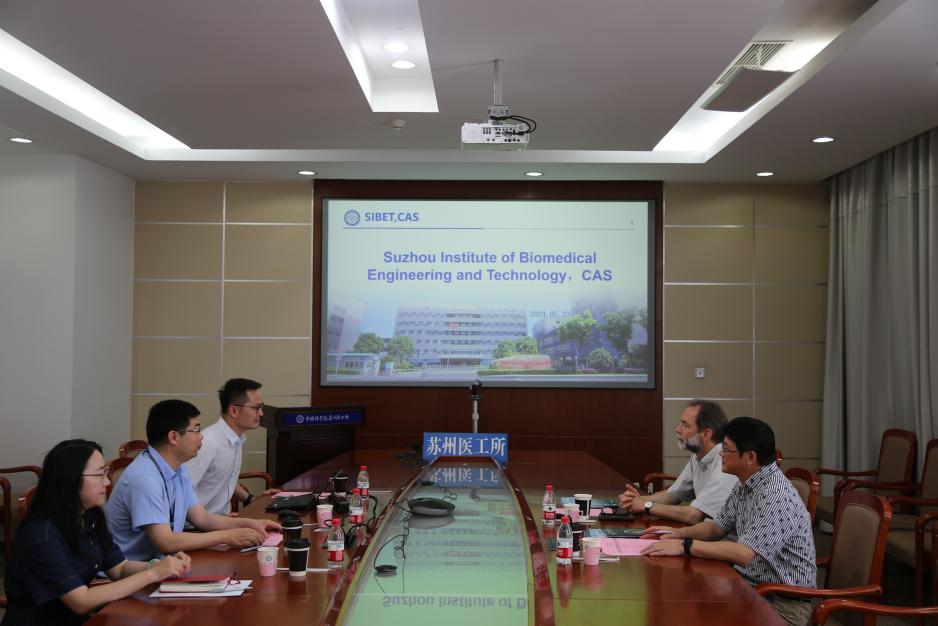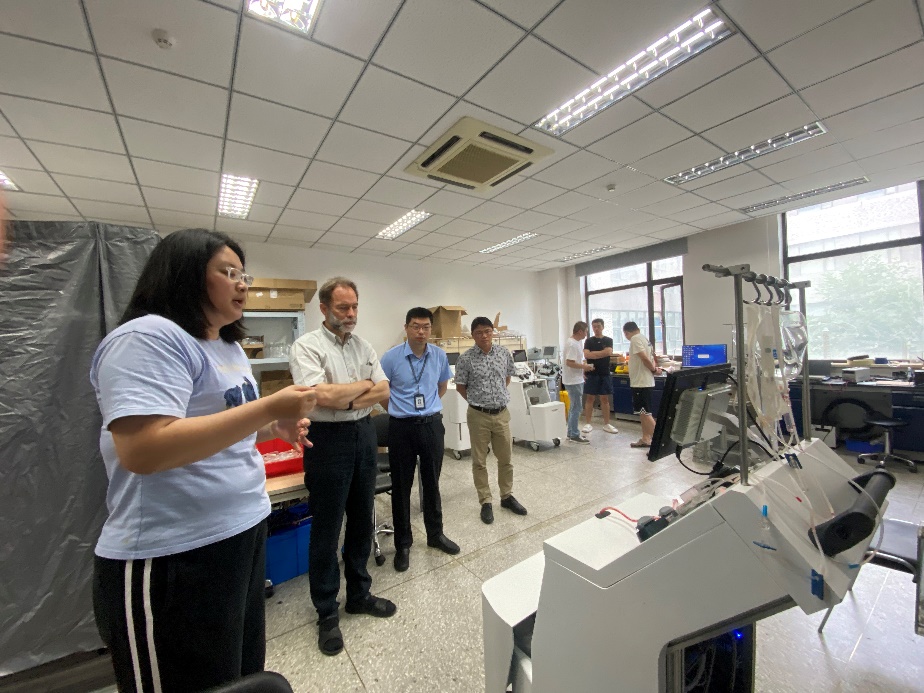A distinguished delegation led by Professor Michael Gelinsky, head of the Centre for Translational Bone, Joint and Soft Tissue Research of TU Dresden, and Professor Yin Xiao, a leading bone tissue engineering specialist from Griffith University, arrived at Suzhou Institute of Biomedical Engineering and Technology (SIBET), Chinese Academy of Sciences (CAS), on May 23, to boost future collaboration on biomedical engineering technologies.
The delegation was warmly welcomed by Prof. Wu Chengtie, the director of SIBET, together with scientists and staff from SIBET divisions including the Division of Science &Technology Development, and the Division of General Administration.
Prof. Wu first shed light on SIBET's significant advancements in biomedical engineering and the institute's achievements in attracting global talents. Then, Prof. Sun Minxuan, Editor-in-Chief of BMEF (BME Frontiers), outlined SIBET's research fields, groundbreaking achievements, international collaboration efforts, and the journal's pivotal role.
Prof. Wu underscored the importance of high-level international collaboration as a cornerstone in SIBET's pursuit of excellence, echoing the CAS' mission to explore and harness high technologies and natural sciences. He elaborated on SIBET's strategy to engage in collaborative research ventures, host prestigious global conferences, facilitate talent cultivation through exchanges, and co-publish impactful research findings, cementing strategic alliances with top global institutions and fostering a powerful, multi-layered international cooperation network.
Prof. Gelinsky shared his work in biomaterial design, 3D Bioprinting, and Biofabrication. He remarked, "China's advancements in biomedical engineering are truly commendable. I look forward to the opportunity to forge a lasting collaboration with SIBET in making advancements in global healthcare."
Prof. Yin Xiao introduced his research in bone marrow stem cells and tissue regeneration. He also commended BMEF for its unique value in and contributions to the field of biomedical engineering, and expressed his willingness to work with SIBET to make breakthroughs in this area.
After the meeting, Professors Gelinsky and Xiao were given a tour of the Engineering Lab and Research Center for Cell Technology, experiencing the vitality and innovative atmosphere of SIBET.
This visit not only marked a promising start for forging international relationships among SIBET, TU Dresden, and Griffith University, but also laid a foundation for future trilateral cooperation in biomedical engineering, which will promote joint efforts and contributions to address global health challenges.

